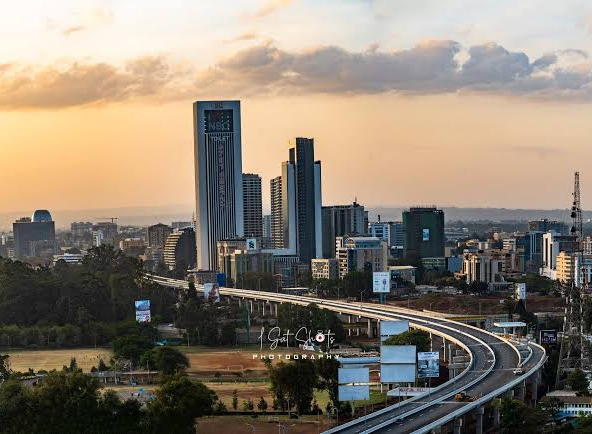It is everyone’s dream to have a place to call home. The land is the most valuable fixed asset that you could possibly own today.
But do you the process involved in buying that plot?
What to Know Before Buying Land in Kenya.
To ensure that you make the right purchase and avoid getting scammed in the process, here is how to carry out due diligence when buying land.
-
The type of land.
It is important to know the intended purpose of the land i.e. if it is for agricultural, residential, commercial or industrial purposes. The seller should have this information.
Moreover, it is very important to know the type of title deed that you will be issued with.
In Kenya we have 2 common types of title deed
Leasehold: The leasehold tenure will allow you to own land for a limited time with an option of extending the tenure upon expiry. The Kenyan constitution limits non-citizens to a maximum tenure of 99 years.
Freehold: You’ll own the land indefinitely so long as the conditions of ownership don’t change.
-
The Access Roads
Is there a pathway or road leading to the land in question? This might sound obvious but there are places without a road and a path has to be created to get to the land. You don’t want to invest in a place that gives you a headache trying to access it.
-
Is It on Riparian Land?
You don’t want to find yourself in a situation that will force you to move after building your home. Remember, building on riparian land is illegal in Kenya.
You can get a surveyor to survey the place and tell you more about the location and the boundaries to know if there is any water body surrounding the land you want to purchase.
-
What Utilities Does the Land Have?
Another crucial aspect to look at before buying vacant land is the presence of utilities such as water and electricity or lack thereof. In some areas, the seller has already installed these on the property.
You could also add these for yourself at a cost, like digging a borehole. Because most people buy land to build on, knowing this information will help you include some of these costs in your budget for better planning.
The Steps To Follow When Buying Land In Kenya
It is advisable to find a lawyer from the initial stages of the process reason being, they understand what is required, they know the ins and outs of the process and all the documentation required to make the process seamless.
The steps include;
-
Find the land
The fastest and easy way to find land to buy in Kenya is by searching online. When using a property selling agentsl such as Amali Properties Agency, you can filter your search according to location and price, two of the most common things people consider when searching for land.
You can also ask for recommendations from your networks to advise on locations where they know there is available land for sale.
-
Do the land search
Once you find the land and talk to the seller, ask for a title deed to help you do the land search, which is free. The land ministry according to the Kenya new constitution has been devolved into counties.
You will need a copy of the land title deed from the seller to facilitate the search. This will normally take three days to get the results of the real owner of the land and if there is any caution put against the land.
If you are buying land outside Nairobi, you will need to conduct a search at the respective Registry where the land is located. For instance, if the land is in Machakos, check with the Survey office in Machakos.
-
Get Survey Maps
Survey maps will help you know where the boundaries of the land should be. The Ministry of Lands provides survey maps upon request. You can also buy the maps from a surveyor.
After getting the maps, visit the land with the surveyor and the seller to mark boundaries on the piece of land to avoid disputes during the sale process.
-
Get The Offer Letter
Once you are satisfied with the search results as presented by their advocates from the lands registry and the company registry, then they will okay their advocate to prepare an offer. The advocate involved should prepare a letter of offer or intent showing the details of the seller and purchaser, the description of the property on offer, and the proposed purchase price and modes of payment.
-
Sign The Sale Agreement
The sale agreement is a legally binding document drawn up by the seller’s lawyer. This agreement protects both the seller and the buyer to ensure that you each benefit from the sale.
You will fill three copies of the agreement: one for you, the seller and the lawyer. It will have:
- Buyer and seller details
- Land description
- Cost of the land and payment timelines
- Who pays for what during the process
- And what happens if there is a breach of contract
Not forgetting the hidden charges: stamp duty of 4% of the value of the land in urban areas and 2% in rural areas. Legal fees are dependent on the value of the land. If the land costs below Kshs 5M, the lawyer will charge a minimum of Kshs 35,000.
All these costs are in the sale agreement.
-
Payment Of Land Rates
Using copies of the title deed you have been given by the seller, check the outstanding land renton the land by logging in on your eCitizen account and navigating on to the Ministry of Lands section, or visiting Ardhi House in Nairobi if the land number cannot be found on the platform or visit the local land registry where the land is located.
Check also with the relevant County Government the land rates outstanding. Land rent is paid to the National Government for GLA (Government Lands Act) and RTA (Registered Titles Act) lands while land rates is paid to the County Governments for all lands.
Some landowners do not pay the yearly land rent and land rates, thus accruing huge penalties.
-
Transfer documents and consent to transfer
Once you complete all the payments, the seller then prepares and signs the land transfer documents to the buyer. Your lawyer should help you with this process to ensure that you get what you are paying for.
The seller should have relevant consent to facilitate the transfer of land ownership through the Ardhisasa online portal.
-
Exchange of documents
Upon receipt of the complete documents from the seller, the buyer is obligated, in exchange of the documents, to pay to the seller the entire balance against the land through his advocates to finalize the registration of the documents after paying the requisite stamp duty.
Finally;
You may know what to do but fail to know how to do it. You can thus seek the services of an advocate with a vast experience in conveyancing to help you navigate and sail through land transactions successfully.




